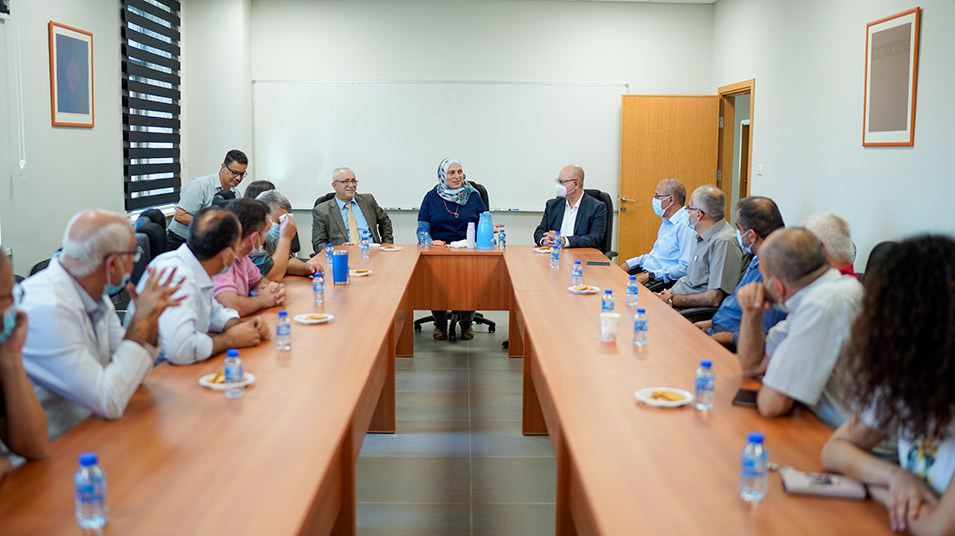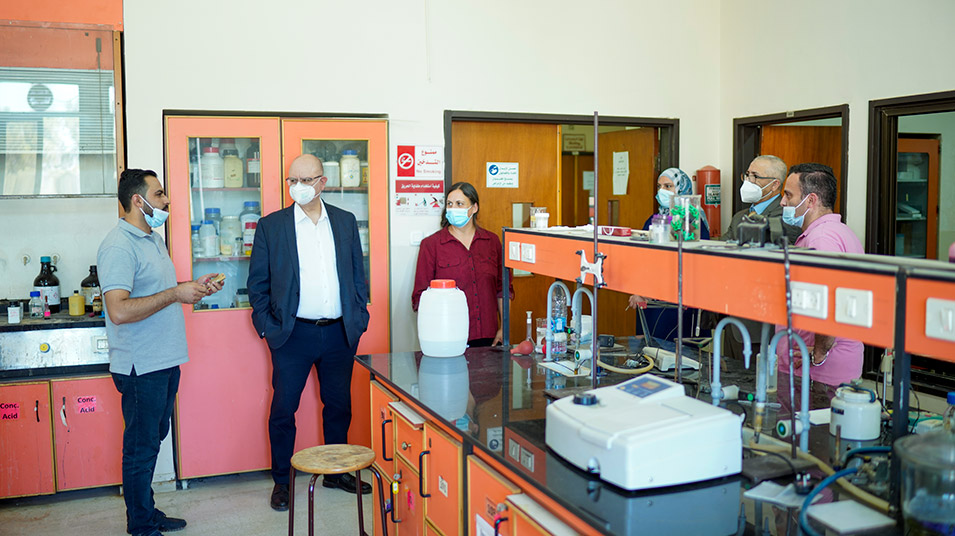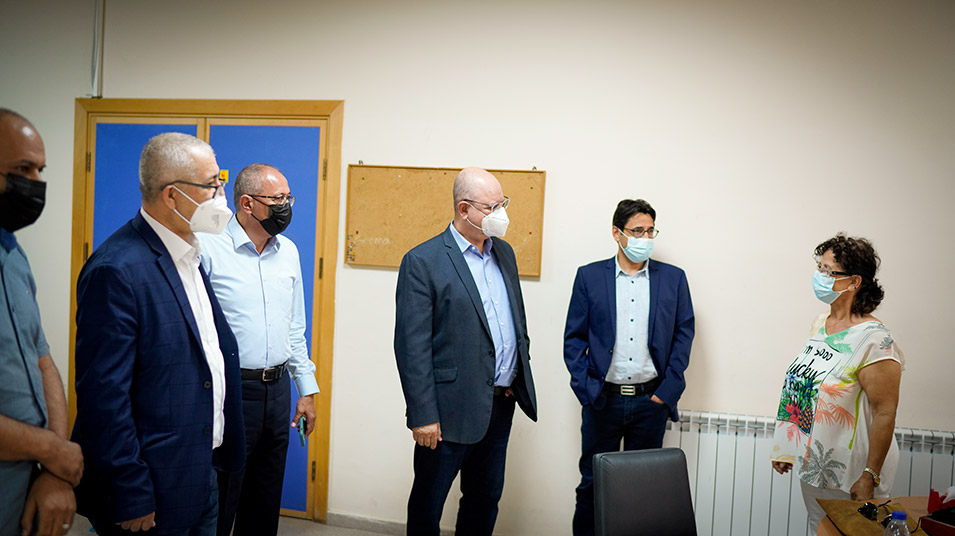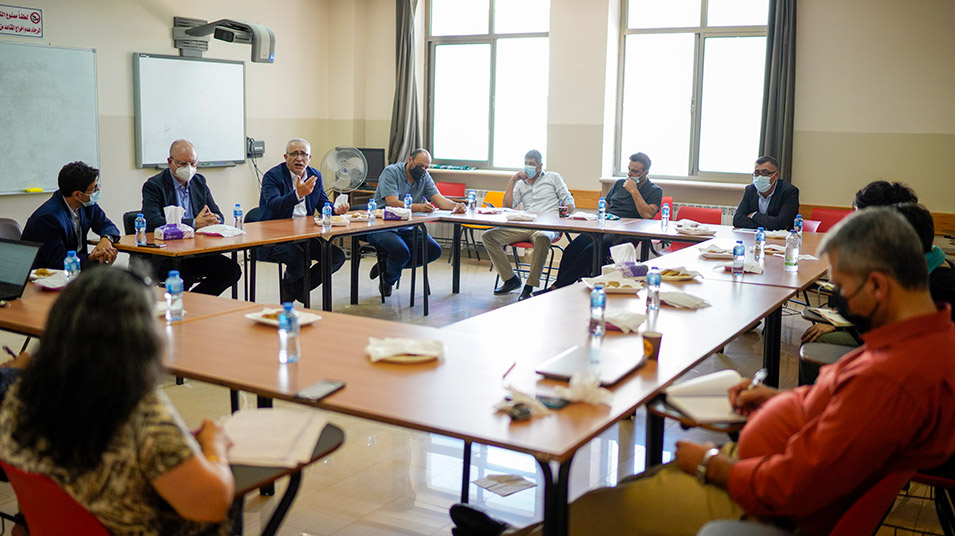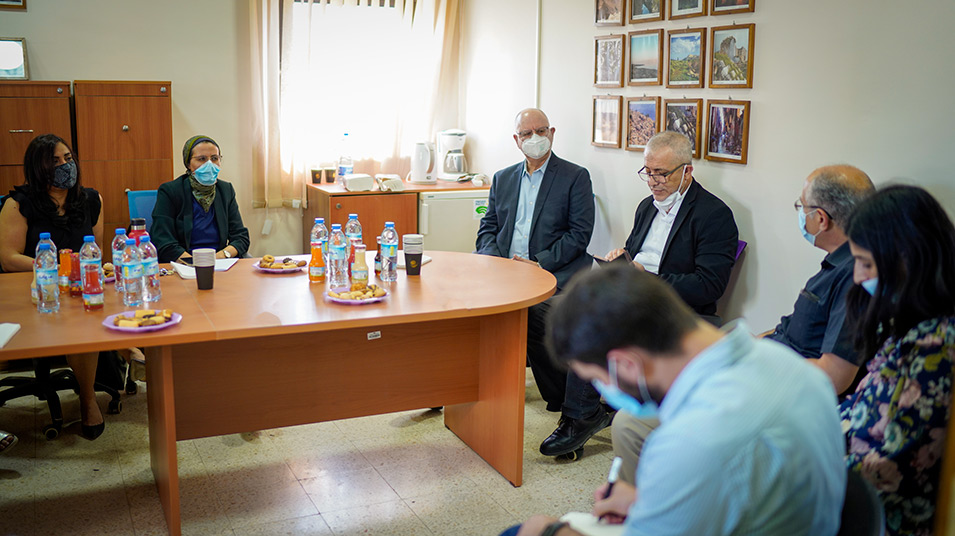In meetings with faculty and staff, administration shares future vision for Birzeit University
“We have the ability and opportunity to lead knowledge production efforts in Palestine and establish connections with regional and international researchers that can inform the skills, knowledge, and experiences we present to our students,” said Dr. Beshara Doumani, president of Birzeit University, in a meeting with instructors and researchers at the Faculty of Arts on Monday, August 23, 2021.
The meeting is part of a series of discussions with faculty and staff members at the university’s nine colleges lead by President Doumani and the new administration to share their vision for the future of Birzeit University and explore the ambitions, and concerns, of the university’s community.
President Doumnai, Vice President for Academic Affairs Dr. Talal Shahwan, and Vice President for Advancement and Communication Dr. Ghassan Khatib have met so far with the deans and department heads of three faculties: the Faculty of Arts, the Faculty of Science, and the Faculty of Engineering and Technology, with more meetings scheduled over the coming days.
In his address to the department heads and faculty members, Doumani stressed the importance of carrying out and supporting Palestinian-driven, internationally leading research, noting that such efforts will improve all aspects of academic life at the university, especially the tools and resources provided to students to carry out their own research and forge their own paths after graduation.
Such a transformation, Doumani noted, requires close, cross-sectional collaboration between the different constituents of the university, whether at the college or university levels, with students at the center of these talks and dialogues.
“Affecting change at this scale will always be a long, demanding process,” said Doumani. “But the bottom-up approach we’re adopting will enable us to support the visions that different departments and faculties have for the future of their programs and the university as a whole. Joint dialogue, shared governance, and transparency, I believe, are the key pillars of a strategy that will see Birzeit University achieve its missions nationally and internationally.”
Shahwan highlighted the strategies and plans, developed through consultations with different constituents at the university, that aim to help departments and faculties realize their future visions. Cutting across Birzeit University’s various colleges and departments, the plans include new training programs based on the faculty’s needs and recommendations; inter-departmental, interdisciplinary research initiatives; and recruitment strategies that reflect not only the needs, but also the future directions of departments and research centers.
The university, Shahwan added, is pursuing a trifurcate strategy that aims to improve and increase the knowledge and skills that students gain from academic and community-engagement programs at Birzeit University; advance pedagogical methodologies to better suit the tools and technologies of the 21st century; and explore the changing roles of instructors and students as two interacting parts of the accelerating knowledge-production process.
Spanning three days, the meetings saw university administrators discuss with the departments and deanships issues regarding student admissions and registration, the return to in-person teaching and learning, supporting the distinct needs of the various faculties, and bolstering the culture of research at Birzeit University and the broader Palestinian community.

